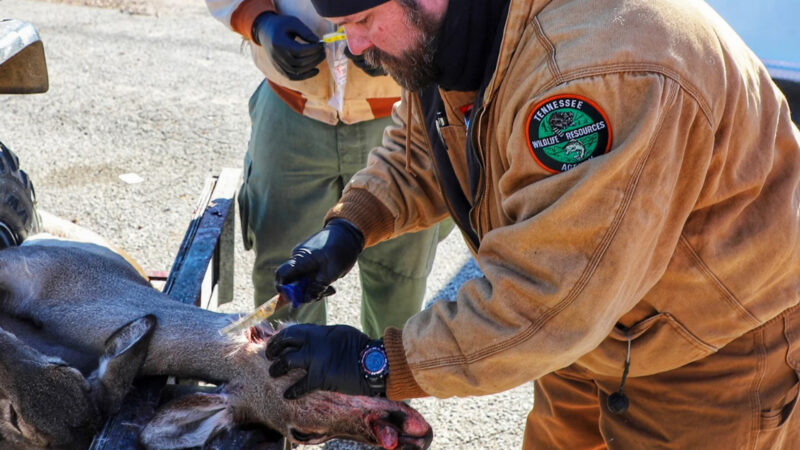If you’ve ever wondered about the legitimacy of CWD numbers being reported by wildlife agencies, you’re not alone. Countless hunters and outdoorsmen have surely found themselves wondering as to whether the numbers are legit and if the plans and procedures currently taking place are truly necessary. In most cases, we are merely left with the option to, “trust the professionals.”
But in Tennessee, one professional is speaking out on what he experienced in his time with the Tennessee Wildlife Resources Agency. James Kelly, a wildlife biologist that led the TWRA’s deer management program and chaired the agency’s CWD Deer Management Standing Team, has shared a different side of the story on CWD in Tennessee.

In a whistleblower lawsuit filed last week, Kelly alleges state officials manipulated data and misled the public about the prevalence of chronic wasting disease, a fatal and infectious disease that attacks deer populations.
Kelly went on to say that TWRA failed to follow best scientific practices and its own regulations in diagnosing potentially infected deer. He also claims TWRA chose to forgo more expensive and accurate lab testing. He then rewrote its regulations to keep its data mistakes from the public before dispatching law enforcement officers to Kelly’s home, interrogating him, then firing him after he sought to make his allegations public.
Yes, those are some pretty bold statements! But what does it really mean?
According to the lawsuit, consequences of releasing inaccurate data led to overinflated reporting of the prevalence of the disease in a number of counties across Tennessee. In fact, instead of 16 counties with confirmed CWD cases, Kelly claims there have only been two – Hardeman and Fayette counties.
There’s also an incredible economic impact that comes into play with mismanagement of CWD numbers across the state.
“Incorrectly reporting the spread of CWD can have an economic impact on the counties where CWD is reportedly found, and it can have an impact on a state wildlife agency’s use of funds and resources,” the lawsuit said. TWRA has “engaged in fraud and mismanagement of its CWD program,” it said.
A spokesperson for TWRA declined to offer comment on pending litigation Wednesday, but issued a statement that disputed claims that the state had publicized faulty data. The state’s protocols are based on “extensive vetting of the latest peer-reviewed research,” the statement said.

In 2021, Kelly grew suspicious at the high number of positive results. He began reviewing lab results and concluded that too many counties were being added, and too fast. He shared his concern that tests were yielding inaccurate results with other TWRA officials. Officials agreed to send positive samples for further IHC testing. None of the tests were found positive under this testing method, the lawsuit said.
The lawsuit claims that rather than admit to hunters, local governments and wildlife officials that mistakes may have been made to designate all 16 counties as positive or at risk for CWD, the agency created new protocols that allowed state officials to ignore the results of the second test. It also claims the new protocols would allow the agency to keep from admitting mistakes to Kentucky wildlife officials, who expended resources creating disease response after TWRA officials reported a bordering Tennessee county had a positive test.
According to a report by the Tennessee Lookout, when Kelly grew frustrated by his efforts to call attention to the problem, he wrote a memo to the Tennessee Fish and Wildlife Commission, the agency’s oversight board.
The day Kelly sent the memo, TWRA officers arrived at his home to hand deliver a letter placing him on leave. The wildlife law enforcement officers confiscated his cell phone, keys and laptops.
Kelly was then ordered to TWRA headquarters, where he was “questioned by law enforcement officers for hours.” The lawsuit calls Kelly’s treatment “malicious and willful.”
The lawsuit claims TWRA violated state laws protecting state employee and citizen whistleblower complaints. TWRA has not yet filed its legal response.

 By
By 



